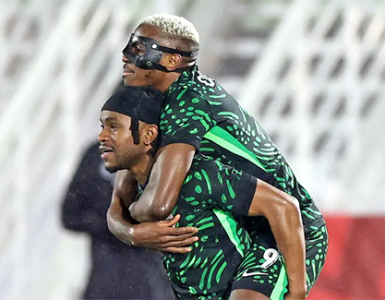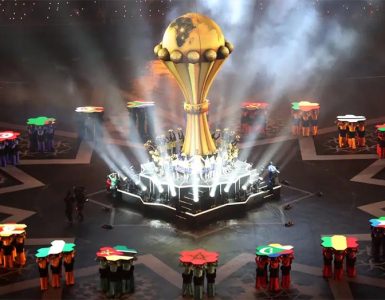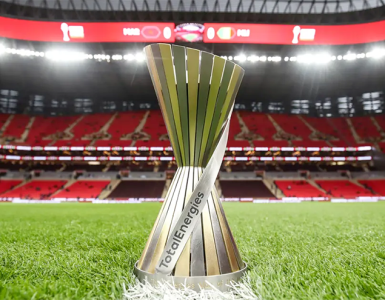CLARITY: Springboks not being sold – not now and not ever says Oberholzer in letter to Mzansi
By Sports Reporter

SA Rugby CEO Rian Oberholzer has written to South Africans, clarifying matters around the potential equity deal between the sporting body and Ackerley Sports Group.
As some of you may have read or heard, SA Rugby is engaged in conversations with a private equity company, which wishes to invest in the future commercial growth of our sport.
That conversation is incomplete, and any agreement that may ultimately be reached, requires the approval of the 14 member unions of SA Rugby before it could be signed.
But there has been much speculation, misdirection and misunderstanding of what the purpose and practicalities of such an agreement involve. Let me put the record straight.
If you take only one thing from this letter, let it be this: The Springboks are not being sold – not now and not ever.
If the private equity deal is approved, it will entail a company investing in a minority shareholding in the commercial rights to SA Rugby’s activities in a newly created Commercial Rights Company (CRC). SA Rugby will remain the majority shareholder.
The CRC will not be responsible for the management or selection of any national teams nor for the management of competitions. It will be based in South Africa and have an operational staff transferred from the existing structures, augmented by international expertise and consultants. It will be SA Rugby’s commercial arm, a subsidiary to the mother body.
What it means in short is that SA Rugby’s commercial activities of selling broadcast and sponsorship rights and running events will continue as before, only in partnership with a company with international experience who believe that our revenues are capable of meaningful increase. This is a good thing.
That is the “what” is happening, but just as important in answering the question, “why are we doing it”?
It’s simple: the Springboks are back-to-back world champions, but off the field the financial sustainability of rugby is far from world class.
The sport took extreme measures to survive the COVID pandemic, but we have zero reserves, and a similarly cataclysmic financial disaster would wipe out the sport as we know it in this country.
Similarly, our peers at international level outperform us in the global commercial markets and we have long needed a step change in our business to generate the income to keep the Springboks on top and, among many other things, help our women one day win their World Cup.
We can’t produce that step change alone and from the foot of Africa, so we have actively sought a partnership with an organisation possessing the platforms, networks, and relationships to enhance our commercial value.
We believe we have found potential partners with those attributes who will join us in the CRC, which will be dedicated only to organically elevating our commercial presence.
I hope I have made it clear that this process is not about a quick cash injection; it is about securing the long-term financial sustainability of the sport of rugby in South Africa so that our international teams can compete on a level playing field.
It will provide us with reserves to weather future storms and the capital to invest in strategies to put us on a par with international best practice on and off the field.
We are not selling the Springboks; we are not ceding away any rights; we are building a new company with a minority shareholder to give the Boks (and the rest of rugby) the commercial resources to ensure that the idea of a Three-peat is not just a pipe dream.
Together with the right commercial partners we will be Stronger.
HUGE REWARDS FOR AFCON WINNERS
BRAVO: African national teams have in the past complained their salaries and bonuses have not been paid
By Sports Reporter

Cash, houses and honours are being bestowed on footballers from Ivory Coast and Nigeria, after Sunday’s riveting Africa Cup of Nations final.
Every player in Ivory Coast’s winning squad will pocket 1 545 193 South African Rand (£65,000) and get a villa worth a similar amount, the presidency announced. “You have brought happiness to all Ivorians, bravo, bravo,” said President Alassane Ouattara of Ivory Coast, which hosted the pan-African tournament.
Nigeria also got a heroes’ welcome.
Although their 2-1 loss in the final spelled heartbreak for the Super Eagles’ millions of fans at home and in the diaspora, their efforts are being handsomely rewarded by President Bola Tinubu.
Each member of the Nigerian squad has received one of the country’s highest honours – the Member of the Order of the Niger. The president is also giving them each an apartment and a piece of land near the capital, Abuja.
Third-placed South Africa are also set to receive about $52,000 per player, according to local media. It is not clear what cash payment Nigeria’s players are to receive from the state purse.
But all of the perks listed above are in addition to the usual prize money doled out by the Africa Cup of Nations, which they say they have boosted by 40% since the last tournament. This means that winners Ivory Coast get $7m, runners-up Nigeria get $4m, semi-finalist South Africa and DR Congo each get $2.5m, while the four teams who made the quarter-finals take home $1.3m each.
This year’s Africa Cup of Nations enjoyed the highest viewing numbers in its 67-year history – thanks to bigger broadcasting and commercial deals, and social media buzz. Almost two billion people are said to have watched worldwide.
Analysts hope the global appreciation for Africa’s footballing flair will translate into more starting slots for African teams at future World Cups. As it stands, Africa has only nine World Cup spots to Europe’s 13, despite the fact these two continents have a near-identical number of Fifa-affiliated countries. African national teams have in the past complained their salaries and bonuses have not been paid. The Cameroon side who won global admiration for their quarter-final performance against England in the 1990 World Cup waited over 30 years to get houses they were promised, by which time their captain had died.
At last year’s Fifa Women’s World Cup, South African footballers won a pay dispute after sitting out a match in protest. Their hastily assembled substitutes had included a 13-year-old girl.































